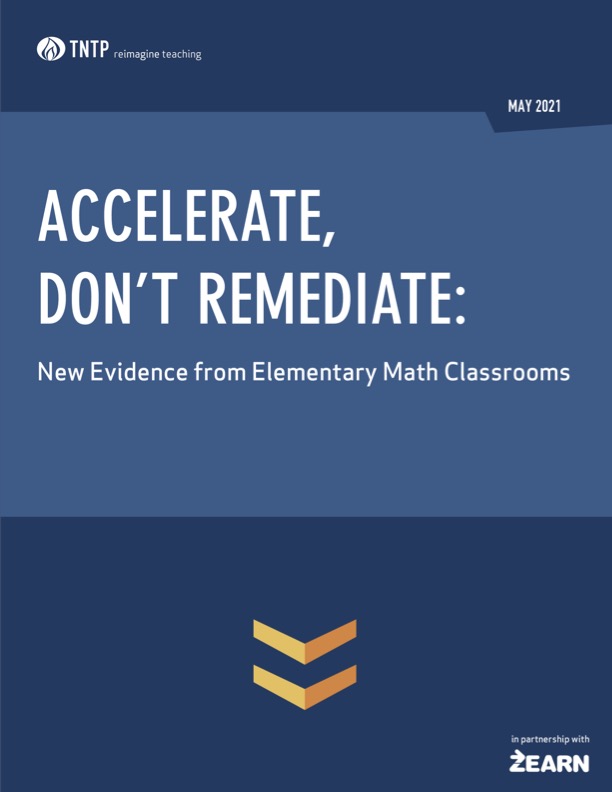As we wrap up one of the most challenging and unique school years ever, I first want to commend ALL THE TEACHERS for their tireless efforts to educate students during this most difficult of times. Your willingness to learn new things (hello SeeSaw, Google Classroom, Zoom, Google Meet, Desmos, and a plethora of other tools!) to reinvent the learning process and mitigate the educational shock to students is nothing short of heroic.
Before turning your attention to NEXT year, please take care of yourself. Get the badly needed rest you deserve.
 In the meantime, teachers have begun asking the MCOE Math Team about the best way to approach curriculum and instruction next year as students return to the classroom in full force. As luck would have it, this joint report from TNTP and Zearn dropped into my inbox with the perfect suggestion for teachers…
In the meantime, teachers have begun asking the MCOE Math Team about the best way to approach curriculum and instruction next year as students return to the classroom in full force. As luck would have it, this joint report from TNTP and Zearn dropped into my inbox with the perfect suggestion for teachers…
Teachers face a critical choice about how to respond. Should they use the traditional approach of reviewing all the content students missed, known as remediation? Or should they start with the current grade’s content and provide “just-in-time” supports when necessary, known as learning acceleration?
The most common approach is remediation in which a third grade teacher, for example, would review second-grade content the students might have missed before teaching the third-grade work. Despite the intuitiveness of this “just in case” strategy, research shows that this approach does not deliver on its promise. In fact, a growing body of evidence shows this approach causes students to fall even further behind while exacerbating racial inequities.
A much better plan is learning acceleration, in which a teacher in third grade begins by teaching third-grade content, and strategically incorporates second-grade prerequisite skills within the third-grade lesson as needed. This “just in time” support allows students to spend more of their time focusing on the major content of their own grade level. Students who experience learning acceleration learn more than students who started at the same level but experienced remediation instead. A learning acceleration approach is also particularly effective for students of color and those from low-income families.
Please take a moment to read this report.
https://tntp.org/publications/view/teacher-training-and-classroom-practice/accelerate-dont-remediate
.
.
.
